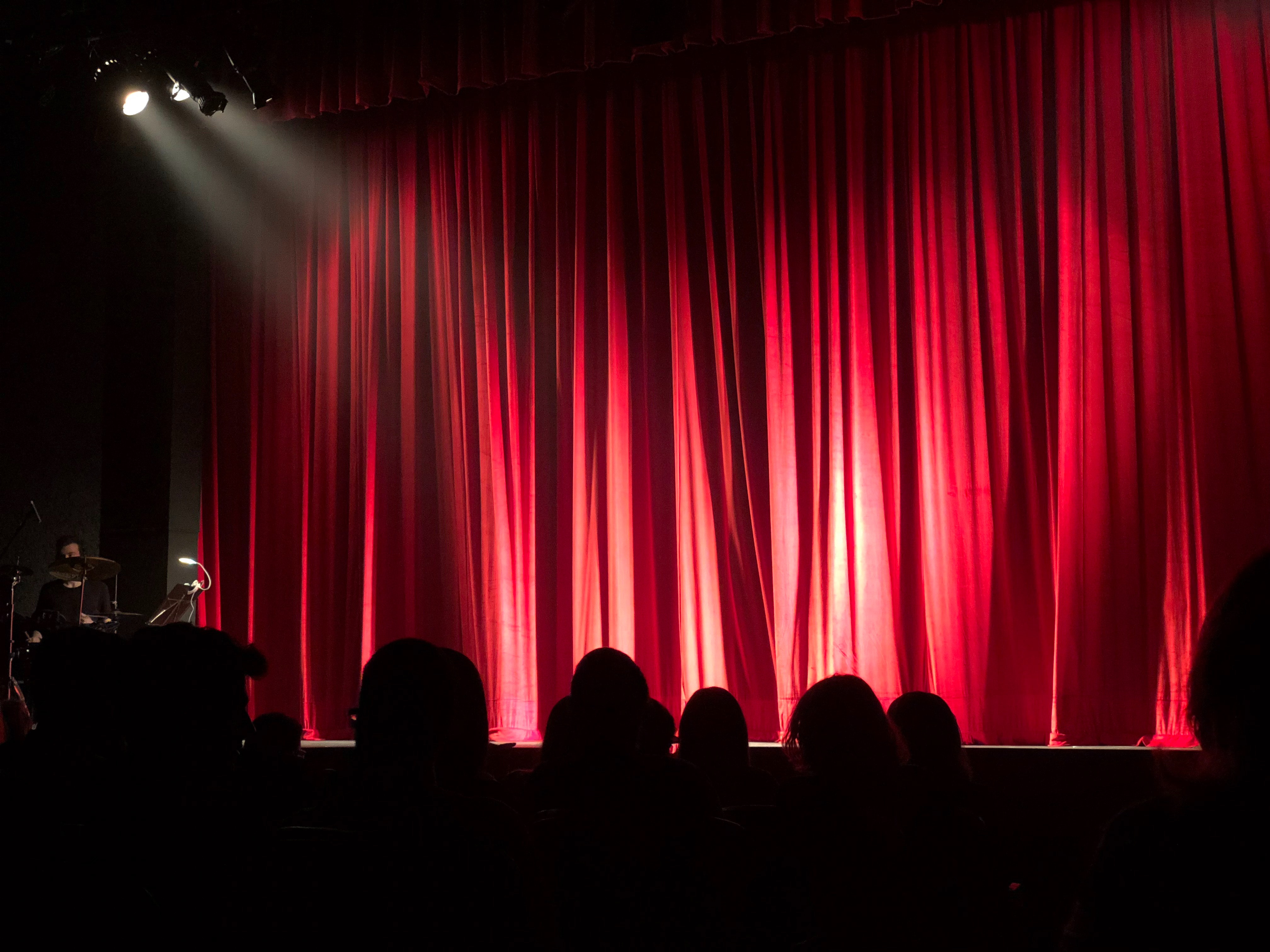Shannen Findlay investigates why slam poetry, or competitive performance poetry, has jumped in popularity over the past decade in Australia.
As the library lights illuminate the dark pavement outside, a tall, bulky guy stands alone on a makeshift stage, his outstretched arms waving as he speaks.
His loud and husky voice spills the story of a one-night stand he had a few years ago. He describes the woman’s lips tasting of “honeydew and vodka”, and their touching as “sweaty”, “lazy”, “drunken”.
He is just one of many bards presenting their poetry tonight at Surry Hills Library, in inner-city Sydney, at one of the last competitive events before the Australian Poetry Slam Finals.
Later, an older man with silver hair will tell his tales through metaphors and alliteration.
A small, blonde woman with a big voice speaks of her experience of sexual harassment, her voice not wavering, her stance strong and proud. Later on, she will tell me one of her legs shook throughout her performance.
Later, an older man with silver hair will tell his tales through metaphors and alliteration.
The Poetry Slam Finals are preceded by competitive events across Australia.
Performance poetry has been around for a long time, but it began to penetrate mainstream Western culture in 1986, when a jazz club in Chicago began hosting weekly “open mic” events for poets whose public performances were judged by the audience.
The format helped to make poetry more accessible to ordinary people, and now slam poetry events are gaining importance in Australia, like elsewhere, as a form of urban literature.
The 2017 National Poetry Slam champion, Jesse Oliver, from Perth, says the events he has participated in have gained in popularity since he began attending them.
“I went to a few poetry events in Perth. It was called ‘Spoken Word Perth’, and it was about 10 people at a weird library,” he recalls.
“Just in the past four to five years, I’ve jumped on the team, we’ve changed venues. We’re getting probably like 100 people every fortnight to our events, and more and more people all the time.
“It’s a great doorway into literacy, because anyone can do it, basically.
“I’m learning about how diverse the [slam poetry] scenes are … There really is that demand there for slam poetry.”
Growing up, Mr Oliver loved rapping and busking with friends. He believes the spoken word is not so different. “We’re still writing, we’re still getting our ideas and our concepts down on to paper. It absolutely fits into that curriculum of literacy.”

Sue Joseph, an author, journalist and lecturer in creative writing, read one of her poems aloud some years ago. “I don’t even know why I did it … You just go, ‘Oh, I can do that.’
“It may be easier to say something that happened to you to a group of strangers … Maybe it’s easier, the anonymity.”
Prospective slam poets might be interested in the genre for a number of reasons.
Dr Joseph says: “You’re standing on a stage and you’re saying something and it’s coming out of your mouth, and people are connecting with you as a person.
“I had people coming up and hugging me with tears in their eyes.
“Poetry is very intrinsic to identity, I think,” reflects Mr Oliver. “Especially performance poetry … It’s got such a direct vulnerability to it.”
His desire to share his writing came from a wish to overcome social anxiety. From his years of experience, he has learnt that written and spoken poetry are extraordinarily different.
“A slam poet is only served in one way, whereas you can read someone else’s poem in a book a number of ways,” says Mr Oliver.
Google Trends from 2010-2018 signify an increasing interest in slam poetry. Social media could be one reason. Poetry on subjects such as sexual assault, feminism, racism and mental illness is found in some of the most popular spoken word videos.
Through social media such as Tumblr, Facebook, Instagram and YouTube, people can digestible auditory content to feast their ears on.
Sue Joseph’s daughter, Tessa, who competed in her first slam poetry competition late last year, first became aware of the art form online.
“I’d seen a few poems going around the internet that really moved me … I thought I’d have a go and I really enjoyed it.
“My leg was literally shaking, but it was really fun.”
After just that one taste, Tessa is planning to perform again and to watch others performing.
Although slam poetry is a relatively new term, Sue Joseph says the art form has always existed in some form or another.
“You know, we know each other by story. We always have done, forever – ever since there was language … Poetry is just another way of telling a story.”
She adds: “The first time someone does a slam or a performance poem, it’s probably because they just have to. They have been living with the story for so long, they just have to get it out.”
The steps required to participate in a slam event, and share your poems, are straightforward. In NSW, would-be participants simply register their names. Dates, times and locations of local competitions can be found on websites such as Australian Poetry Slam.
READ MORE: The modern day poets reinventing the spoken word
Background music: www.bensound.com
– @findlayshan<


